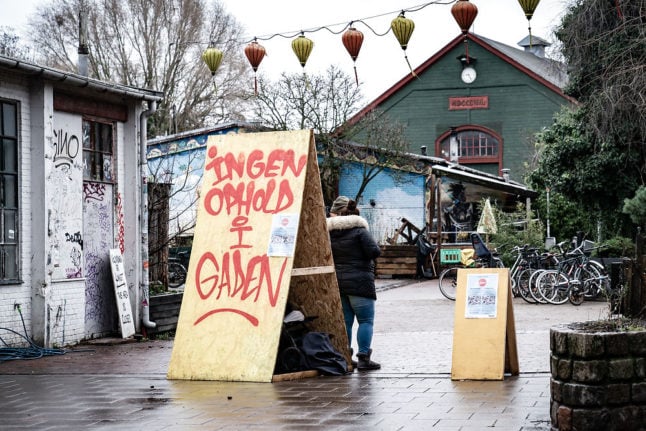The ban, a so-called opholdsforbud, allows the public only to pass through, but not stop in the area. It was originally introduced in January as a measure to limit the spread of Covid-19 infections. At the time, a tendency for crowds to gather in the area was cited as the basis for the measure.
“Copenhagen Police still assess that a ban is necessary to constrain the spread of Covid-19 in an area of Christiania,” police said in a statement on Wednesday without giving further detail.
The restriction now remains in place until at least February 24th.
The ban applies in the ‘Pusher Street' and ‘Green Light District' of Christiania, an alternative enclave in the Danish capital. In more normal times, the area is known for features including the market stands on Pusher Street, from where cannabis is sometimes illicitly traded and clamped down on by police.
Under the ban, lingering in the affected areas is banned between 10am and midnight.
Police will continue “increased presence in and around Christiania,” according to Wednesday’s statement.
Last month, The Local became aware of concerns raised by people who live near to Christiania that the area has become less safe in recent weeks. The concerns were based on confirmed reports of trespassing, theft and harassment. Any connection between these incidents and restrictions on Christiania is speculative, however.
Walking, running and walking of dogs in the affected area is allowed during the periods affected by the ban, but no further public use is permitted.
Failure to comply can result in a fine of 2,500 kroner.



 Please whitelist us to continue reading.
Please whitelist us to continue reading.
Member comments